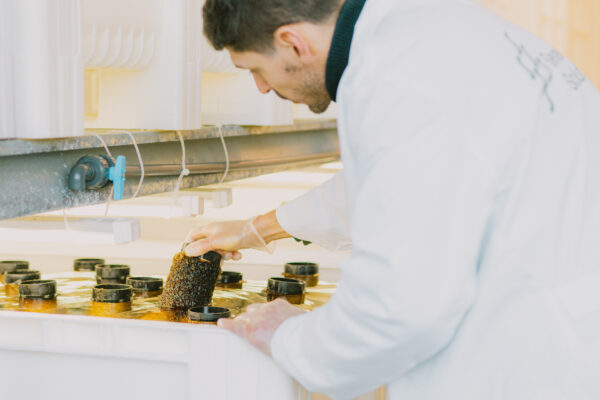Source your seeds from the industry's most experienced seaweed farmer.
Experience matters when it comes to seaweed cultivation. Trust the pioneers with proven expertise to provide the highest-quality seeds for your success.

Experience matters when it comes to seaweed cultivation. Trust the pioneers with proven expertise to provide the highest-quality seeds for your success.

1. Let’s talk about your needs
Our collaboration starts with a deep understanding of your needs as a farmers. Our team of experts will meet you to discuss and identify suitable seed products, seeding methods and needed advice.
2. Production and delivery
We collect local motherplants from your region to ensure responsible use of native genetics adapted to your farm environment. Fertile material is shipped to our facilities for spore release and seed production and shipped back to your farm, ready for action on deployment day.
3. Monitoring and evalution
We support you in monitoring and data collection to make sure that learnings from one year will make next year even better. By aggregating data from multiple farms we ensure a rapid improvement in yield, quality and predictability.


Seaweed Solutions is a leading supplier of premium seaweed seeds and cultures, supporting sustainable growth and innovation in seaweed cultivation. With a focus on quality and tailored solutions, we empower cultivators and researchers worldwide.